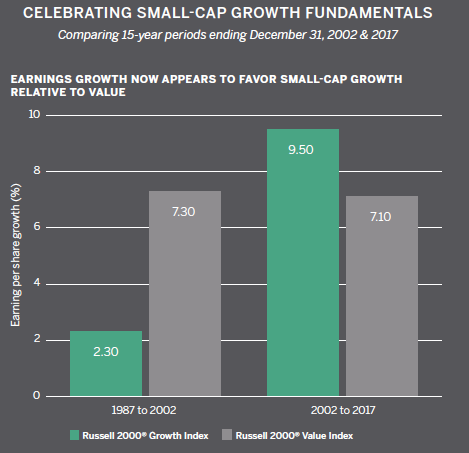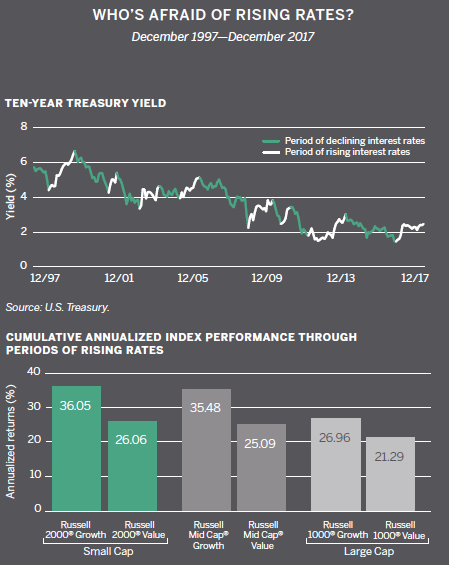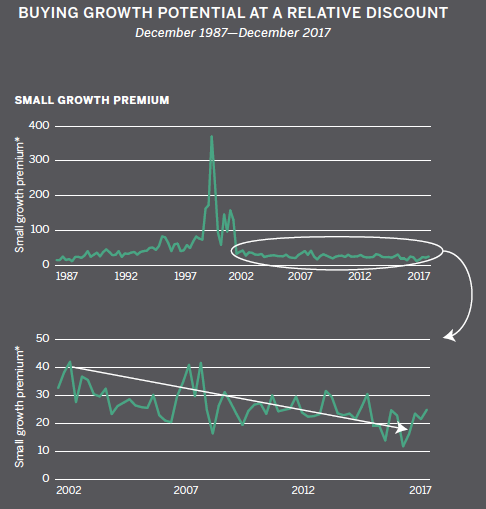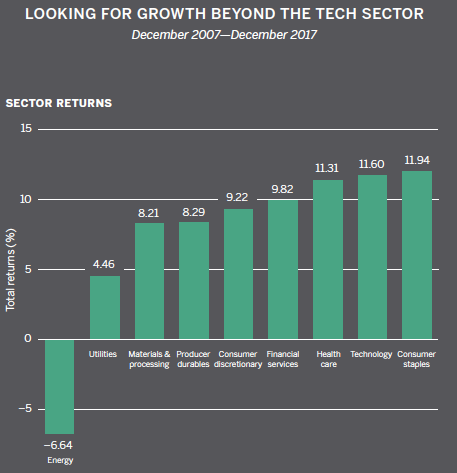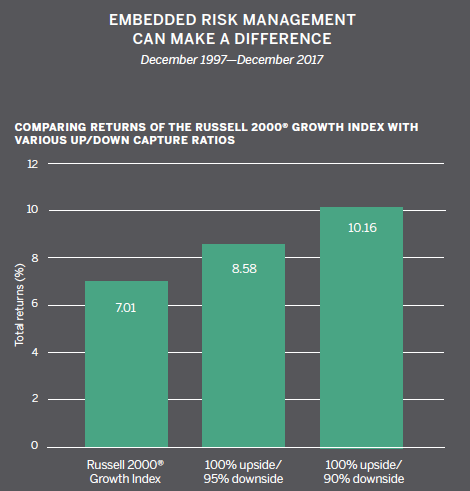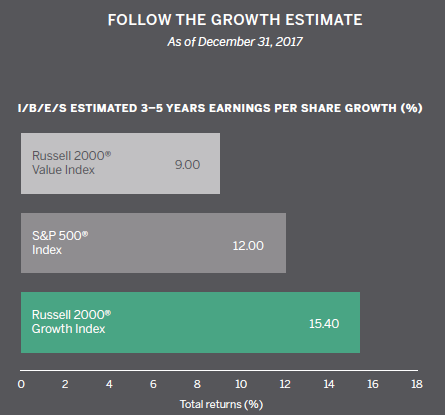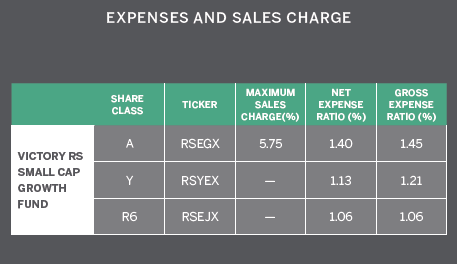It’s an age-old challenge that many investors face: Where should goal-oriented investors turn to make up any future return shortfalls from other areas of their portfolio?
There are many approaches to consider, but for whatever reason some investors shy away from domestic small-cap growth equities. This investment style within the market includes exciting companies across many industries, often with innovative products, disruptive business models, and long-term potential. Yet many investors still do not actively consider an explicit allocation to small-cap growth stocks.
So why no love for the small-cap growth style box? Perhaps investors harbor misconceptions about both small-caps and growth stocks. They’re too risky. Too volatile. Too expensive. Too techy. Too vulnerable to rising rates.
These myths—call them conventional wisdom—might make for good headlines that grab readers’ attention. But rather than focusing on the sensational (and sometimes dubious) claims, why not dig a little deeper and make allocation decisions based on the empirical data?
With that in mind, the RS Investments Growth franchise has looked at five common myths surrounding the dynamic small-cap growth sector. The evidence suggests that investors might wish to consider an allocation to small-cap growth stocks.

